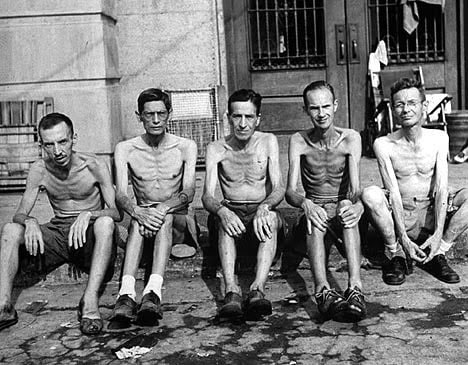
ADVERTISEMENT - CONTINUE READING BELOW
19. Allied prisoners of war were forced to live on a deficient diet offering as little as 600 calories per day
The Empire of Japan, although not a signatory to the Second Geneva Convention of 1929, had agreed to its provisions prior to the start of the Second World War. Despite this, the Japanese refused to abide by the terms of the international accord, subjecting prisoners of war to truly horrific treatment. Although situations varied between camps, with Camp Commandants granted almost limitless discretion to determine rules, everyday conditions were uniformly bleak. Clothed in rags, Allied POWs were forced to subsist on a diet of sometimes as little as 600 calories per day, resulting in widespread malnourishment and critical levels of starvation.
During the “White Rice Period”, lasting from January to October 1942, Allied prisoners were granted a maximum of ten ounces of rice per day, in addition to two ounces of rancid pork and four ounces of fish monthly. This official figure was often larger than that actually provided, with theft by Japanese soldiers, themselves suffering from starvation towards the latter days of the war, commonplace within the camps. Red Cross parcels, containing necessary essentials, were accepted by the Japanese authorities, but rather than being redistributed among the prisoners were kept by the Japanese soldiers themselves.

